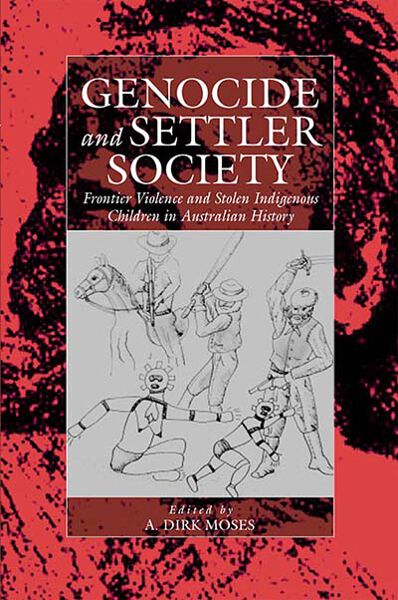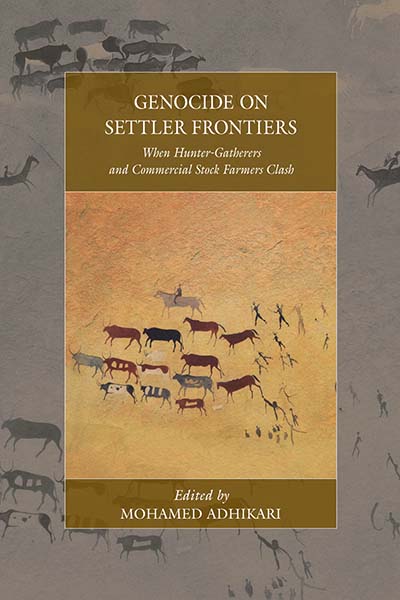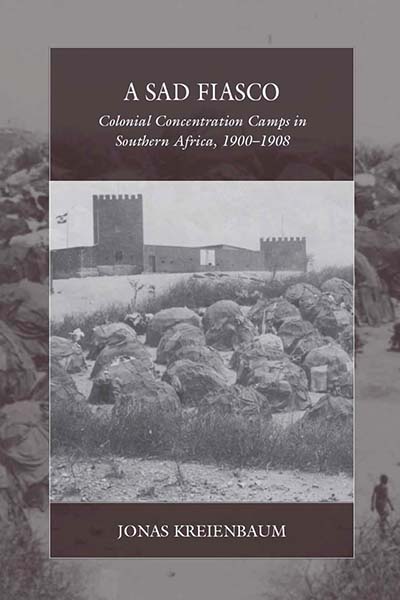
Series
Volume 6
War and Genocide
Email Newsletters
Sign up for our email newsletters to get customized updates on new Berghahn publications.
Genocide and Settler Society
Frontier Violence and Stolen Indigenous Children in Australian History
Edited by A. Dirk Moses
344 pages, 1 map
ISBN 978-1-57181-410-4 $135.00/£104.00 / Hb / Published (October 2004)
ISBN 978-1-57181-411-1 $29.95/£23.95 / Pb / Published (March 2005)
eISBN 978-1-78238-169-3 eBook
Reviews
“This anthology represents an invaluable contribution to the study of radical violence in colonial Australia and stands in its own right as an historical document reflecting the current state of the discipline on the question of genocide. It offers an impressive breadth of discussion and does not attempt to impose an artificial unity in an essentially divided field. At a more practical level, it is immensely useful as a teaching text. Moses has done the scholarly community a service by foregrounding the important question of genocide in Australian history in such a thoughtful, open-ended way. It will have provided an invaluable service should it engender further informed debate about the nature of genocide, the nature of colonial empires and the nature of the Australian past.” · Journal of Australian Studies
“In this book Dirk Moses recognizes the enormity of the task before him. By establishing a conceptual framework for Australian historians to consider genocide as an integral part of modernity and white settler colonialism, he has begun the process. This is a singular achievement.” · Holocaust and Genocide Studies
“…editor and contributor A. Dirk Moses has compiled an excellent set of first-rate essays all of which shed some insight on the book’s themes…The chapters…are well written, well edited, and very thought provoking…This book has a great deal to commend it. Each essay is well written and manages to present a point of view without being dogmatic…A wide variety of scholars will find this book worthwhile reading.” · Itinerario
“…often new, probing and rich examinations of the takeover of a continent by white Anglos and the long-term impact…the book is replete with detailed and meticulously sourced information on the scope, scale and persistence of the cruelty and violence involved – actual and structural- over a 200-year period...there is a great deal in this excellent volume that demands grounds for deep reflection on how Australia came to be what it is.” · Patterns of Prejudice
“The value of this stimulating collection of historical essays is that it points to both the usefulness of a transnational framework for analysing race thinking and the necessity for close attention to the historical specificity of particular moments and places.” · Australian Book Review
“[This volume] constitutes a successful exercise in deparochialization...[it] firmly inscribes the genocide directed towards towards Australia's indigenous peoples in the historiographical record.” · Australian Humanities Review
“[This volume] is an outstanding collection, a challenging conversation between differing viewpoints where discussion is ongoing and cooperative.” · Australian Historical Studies
“The book makes a valuable contribution to scholarship on a subject that touches deep into the dark shadows of Australian identity. It builds on and explores the underlying issues that emerged in the heat of the genocide debate in Australia. Australian historiography, and in particular writing on Australian Aboriginal history, can be insular and with its own blind spots. Genocide and Settler Society not only offers a number of local case examples, grounding the debate in the Australian context, but also places the Australian debate in a broader international context with contributions from eminent European and Australian scholars, bringing new perspectives on this vexed question. I found this the most intellectually stimulating and refreshing aspect of the book.” · Journal of Australian Studies (JAS) Review of Books
Description
Colonial Genocide has been seen increasingly as a stepping-stone to the European genocides of the twentieth century, yet it remains an under-researched phenomenon. This volume reconstructs instances of Australian genocide and for the first time places them in a global context. Beginning with the arrival of the British in 1788 and extending to the 1960s, the authors identify the moments of radicalization and the escalation of British violence and ethnic engineering aimed at the Indigenous populations, while carefully distinguishing between local massacres, cultural genocide, and genocide itself. These essays reflect a growing concern with the nature of settler society in Australia and in particular with the fate of the tens of thousands of children who were forcibly taken away from their Aboriginal families by state agencies. Long considered a relatively peaceful settlement, Australian society contained many of the pathologies that led to the exterminatory and eugenic policies of twentieth century Europe.
A. Dirk Moses Dirk Moses is chair of global and colonial history at the European University Institute, Florence / University of Sydney. He has also edited another volume in this series entitled Empire, Colony, Genocide.


